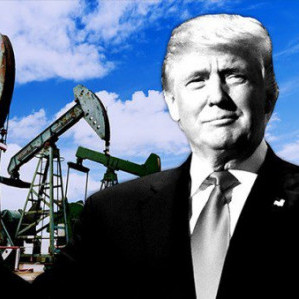Monday evening featured an online summit between US and Chinese Presidents Joe Biden and Xi Jinping. The long-awaited (especially by the United States) meeting was initiated by the American leader, although Beijing chose to watch out and kept delaying its holding. The summit, be it noted, took place at a time when relations between Washington and Beijing deteriorated to a level last seen in 1979 when the two powers established diplomatic ties and exchanged embassies. The US declared China responsible for everything from provocations against Taiwan to democracy suppression in Hong Kong to the persecution of the Uyghurs in Xinjiang. Biden himself has repeatedly made it clear he deemed China as the United States' major rival in national security and economy, while emphasizing his reluctance to a cold war with Beijing.
Having warned that China was rapidly expanding its nuclear forces, the Pentagon added fuel to the flames, as Britain's The Financial Times noted ahead of the summit. As a result, its arsenal of nuclear warheads will more than quadruple to reach 1,000 units over the decade. Moreover, the outlet said China recently tested two supersonic missiles that flew around the globe. In other words, China may bypass the American missile defense system. In turn, Hong Kong's The South China Morning Post claims that the tough course of Beijing (for which read Xi Jinping himself) towards the United States enjoys support from CPC top leaders. The recent plenary session of its Central Committee, which for the first time placed the current Secretary General on the same pedestal as Mao Zedong and Deng Xiaoping, pointed out that actions in Hong Kong and Taiwan are an important part of Xi Jinping's legacy and political successes.
Some analysts believe that the current summit was important both for Biden and the Chinese leader. There are two main reasons for that. First, Beijing intends to hold the Winter Olympic Games in February 2022. Second, Xi Jinping himself is preparing to be affirmed for a third five-year term as CPC Secretary General at the XX Party Congress next October – an unprecedented thing in China's recent history. In this regard, the President of the People's Republic of China may be needing to stabilize relations with his country's key rival, the United States.
Beijing, however, harbors no illusions about its leader's meeting with Joe Biden. According to the White House, Washington officials have a similar view. By and large, that's exactly how it happened, since none of the leaders made any pivotal statements or joint statements after their summit. Yes, they did discuss "ways to responsibly manage the competition between the United States and the PRC, as well as ways to work together where our interests align," as White House Press Secretary Jen Psaki put it. However, one should not expect a sharp warming in relations between the two powers, as the contradictions are much too deep. First of all, as regards ideology.
Although not a face-to-face meeting, the videoconference was certainly a step forward. The goal was to reduce tension, agree on regular contacts so that competition between the countries is carried out in a responsible way and does not veer into conflict. There are aspects of relations between Washington and Beijing where there is a window of opportunity to find a single approach. These are, for instance, climate change, combat against coronavirus, and energy sector sustainability. As regards human rights and South China Sea disputes, prospects are slim for an agreement to be reached, and the summit generally confirmed this, with the parties having generally agreed to disagree.
However, if you follow China Central Television (CCTV), Joe Biden still dropped a few curtsies towards Beijing. He said Washington remains committed to the "One-China policy", is unsupportive of "Taiwan independence" and hopes for peace and stability in the Taiwan Strait region. As reported by the Xinhua news agency, Xi Jinping, in his turn, assured the US president of his readiness to take decisive steps once separatist forces in Taiwan cross the line.
At the same time, an official statement issued by the White House on Tuesday said President Biden "was clear about the need to protect American workers and industries from the PRC’s unfair trade and economic practices," and also "discussed the importance of a free and open Indo-Pacific." Apart from that, the American leader expressed concern about Beijing's policies in Xinjiang, Tibet and Hong Kong, as well as human rights in general. Biden also informed about US unwavering determination to meet its obligations in the region and said Washington does not seek either changing China's regime or creating a bloc against it to confront it or entering into conflict with it.
The military bloc statement raises certain doubts. Why then were the AUKUS (the USA, Australia and the UK) and the QUAD (Quadrilateral Security Dialogue comprising the US, Australia, India and Japan) created? Most analysts are sure both alliances are to contain Beijing in the Indo-Pacific.
It's no secret that in broad terms, the United States and China are competing for XXI century global leadership. It is difficult to find a common denominator here. But we can expect progress in trade and economic relations. Biden faces inflation and commodity shortage cause by supply-side shock. China undergoes difficulties with energy and the real estate sector. This encourages the parties to seek compromise options and take the heat out of trade war. Time will tell how they will manage to do this in practice.
Relations between Beijing and Washington should be viewed through the lens of overall global development. No wonder that the summit saw President Xi Jinping note that humanity is facing many challenges and threats. According to him, China and the United States, being the largest economies in the world and permanent members of the UN Security Council, should strengthen cooperation, not only solving domestic political and economic issues, but also assuming responsibility for promoting peace and development on a global scale.









